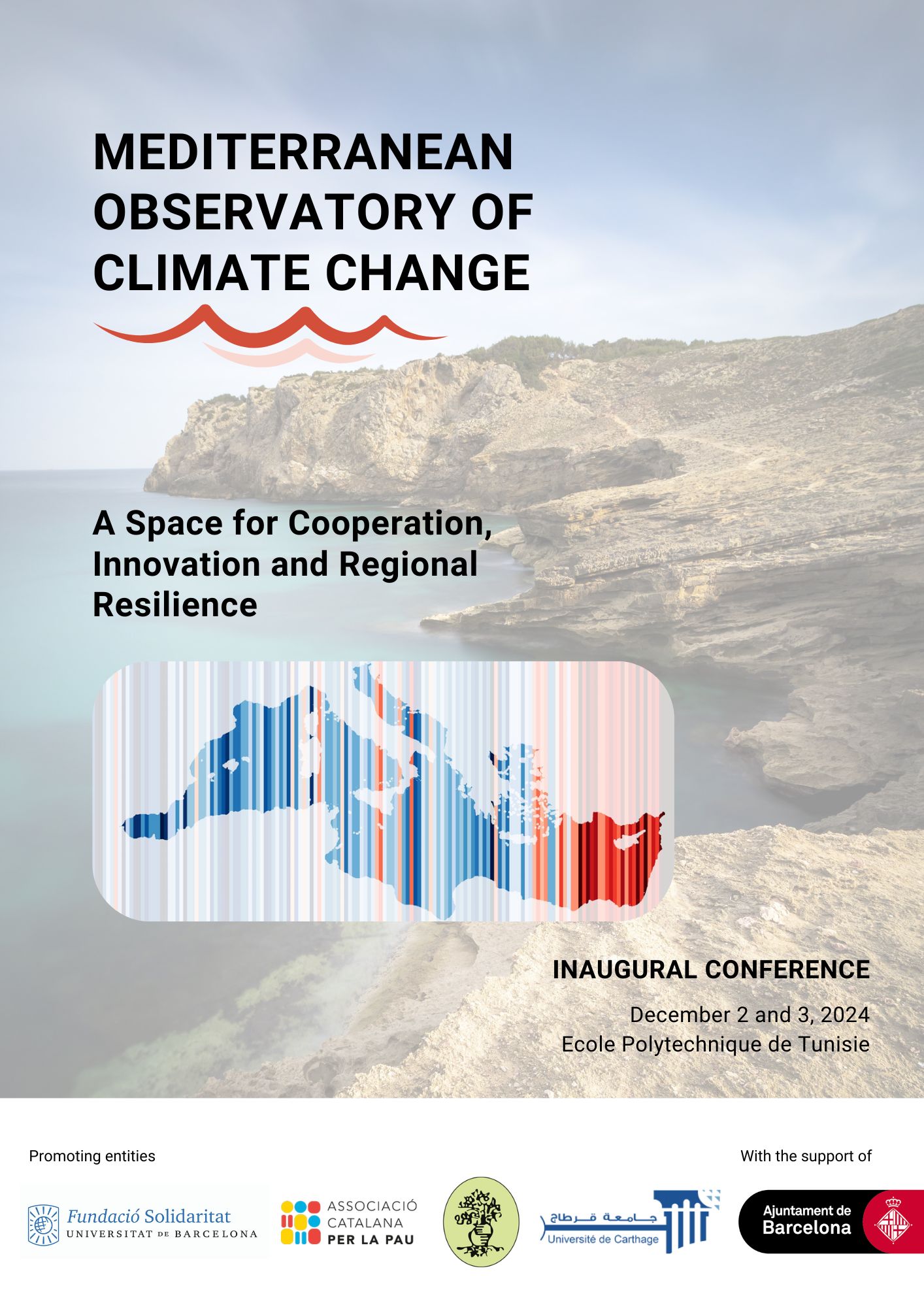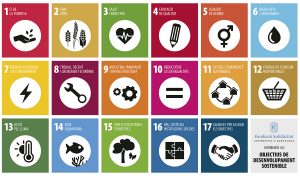With headquarters also in Ramallah and Barcelona, the Observatory will monitor critical climate phenomena such as water shortages, vulnerable agriculture, and flood risks to develop adaptive solutions.

The Mediterranean Climate Change Observatory (OMCC) will be officially presented on December 2 and 3, 2024, at the Tunisian Polytechnic School, through an international congress focused on climate change adaption strategies. The event will emphasize international cooperation, technological innovation, and the sustainable management of natural resources. You can follow it live on YouTube, and registrations are open through this link.
With four round tables, the congress will feature debates on the effects of climate change in the Mediterranean; agricultural innovation and water management in response to the climate emergency; the conservation of biodiversity and the management of natural resources as climate solutions, and the role of NGOs, civil society and administrations in adapting to this reality. Additionally, three workshops will aim to build consensus on the Observatory’s objectives, outline strategic action plans, and establish both an operational working network and a body for coordinating and monitoring the actions.
The OMCC is an initiative spearheaded by the University of Carthage (UCAR), the Palestinian Farmers’ Union (PFU), the Catalan Association for Peace (ACP) and the Solidarity Foundation of the University of Barcelona (FSUB), with the support of the Barcelona City Council. In addition to the founding organizations, the inaugural congress in Tunis will feature the participation of the Global Sustainability Hub of the University of Barcelona (UB), the Palestine Technical University – Kadoorie (PTUK), the European University Cyprus (EUC), the University of Catania (UniCT), the An-Najah National University (UNA), the Tunisian Association for Sustainable Development – Research in Action (React), the Specially Protected Areas Regional Activity Centre (SPA/RAC), the Barcelona Zoo and the Spanish Agency for International Development Cooperation (AECID).
The Mediterranean Climate Change Observatory (OMCC)
The OMCC has three headquarters reflecting the geographic diversity of the Mediterranean region: the PFU in Ramallah (eastern Mediterranean), the UCAR in Tunis (central Mediterranean) and the FSUB in Barcelona (western Mediterranean).
The establishment of the Observatory is driven by the Mediterranean’s unique vulnerability to climate change, which makes it a critical area for studying the effects, mechanisms and interrelationships of this environmental emergency at a global level. The region faces distinctive challenges, including water scarcity, vulnerable agriculture, and an increased risk of flooding, all of which underscore the importance of targeted climate action and adaptive strategies.
The Observatory will play a key role in the monitoring of these phenomena, developing evidence-based policies, and implementing adaptive solutions that specifically address the effects on the vulnerable populations. This will enhance local resilience and provide a platform for international cooperation in climate change management.
The priority themes of the OMCC are strategies for adapting to climate change, sustainable management of water resources, sustainable and ecological agriculture, preservation of biodiversity, and urban and territorial transformation to promote resilience. To advance these goals, the focus will be on open science and citizen science, with collaboration sought among three key stakeholders: higher education and research institutions, non-governmental and civil society organizations, and public administrations, with special attention to those at the local level.
This news is related to the following SDG of 2030 Agenda:








